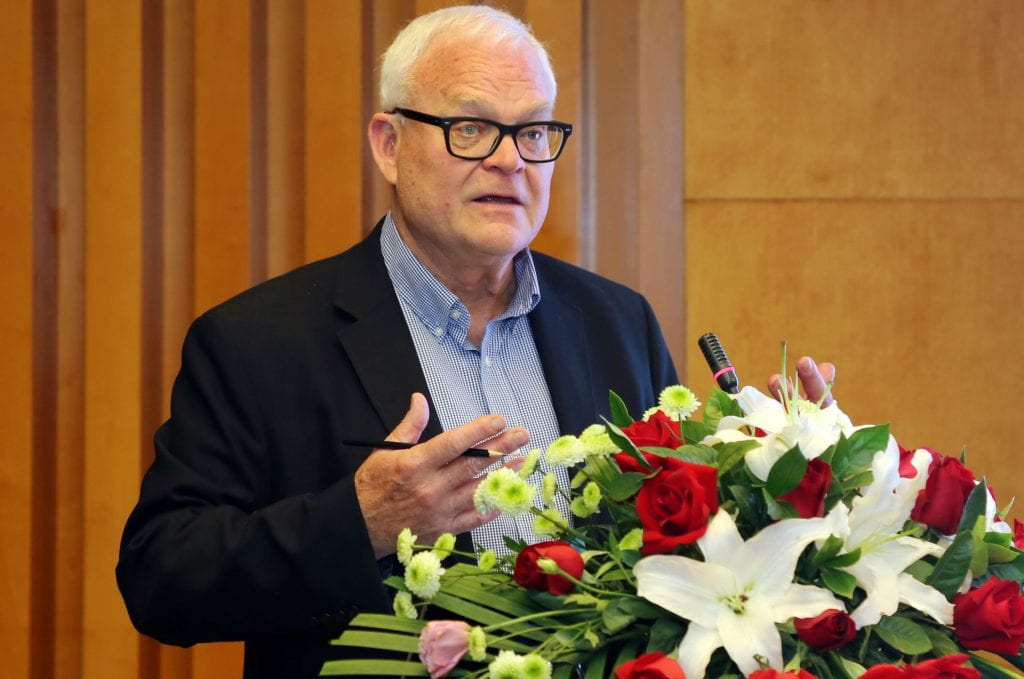With the global trend toward financialization of daily life, financial capability and asset building (FCAB) is becoming a more important topic. China recognizes the trend and is taking a leadership role in FCAB.
Informed by work established at the Center for Social Development (CSD)—FCAB theory, empirical studies and the FCAB curriculum—financial social work (FSW) is taking root and growing in China.
In a national effort to alleviate poverty, China has already invested deeply in financial technology (“FinTech”) to achieve financial inclusion. In this context, FSW is a good fit with China’s public priorities and the interests of social workers, researchers, policymakers and educators.
Over the course of two decades, CSD has built and sustained partnerships that have set the stage for the introduction of this idea; the training of key FSW local leaders; and the creation of a professional network through conferences, research and policy/program innovation.
Building on this work, director Michael Sherraden and international director Li Zou continued CSD’s FCAB leadership at several recent conferences at Chinese universities.
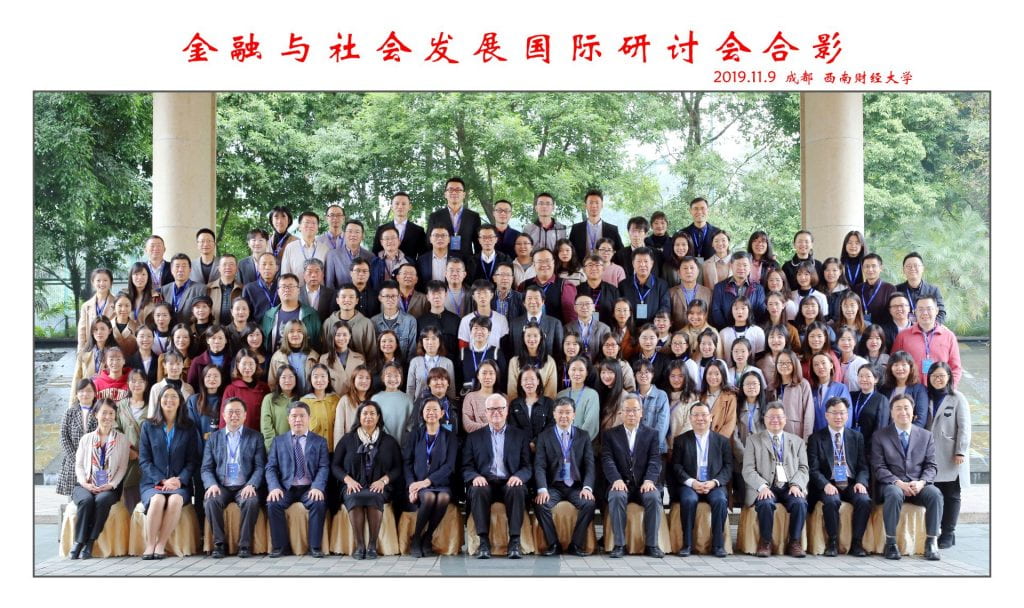
The first was the “International Symposium on Finance and Social Development” at Southwestern University of Finance and Economics (SUFE) in Chengdu, China on November 8-9.
Sherraden, presenting on behalf of coauthors Jin Huang and Margaret Sherraden, participated in the keynote session, speaking on “Financial Capability and Asset Building: A Grand Challenge for Social Work.” After outlining the core principles of FCAB and sharing the latest developments in FCAB research and curriculum, Sherraden offered a long-term vision: “Basic finance can become more like a ‘public good’,” using examples such as municipal water systems and public highways.
“People used to have to leave the house each morning to get water. Sometimes the water was dirty and people would get sick. Now, clean water is piped in through plumbing systems, and we take this for granted,” said Sherraden.
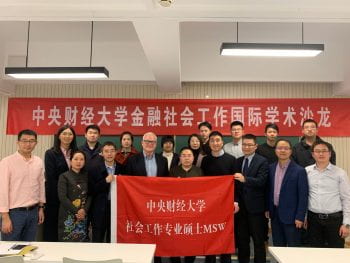
“In the information age, community banks and ATMs will likely be replaced with access to better quality finance through Internet and mobile technology, avoiding high fees and inefficient, poor quality services. This will be ‘the plumbing’ for finance. This is happening more quickly than many people realize, and China is in the lead globally.”
The second meeting was the “International Salon on Financial Social Work” hosted by the Institute for Social Development at the Central University of Finance and Economics (CUFE) in Beijing. This international gathering was held on November 10. Sherraden and Zou were pleased to see the Chinese understanding of inclusive finance as a social development issue.
Zou presented on “Financial Capability and Asset Building: An Example of U.S.–China Partnership for Research.” She summarized the long and productive partnership among Peking University, Hong Kong Polytechnic University and Washington University in St. Louis, highlighting FSW as one of the three core areas of research, education and policy development in this partnership.
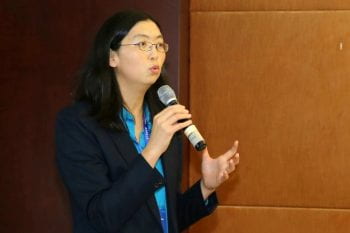
Sherraden again provided the keynote address, this one entitled “One Key Strategy for Financial Capability and Asset Building: Child Development Accounts.” He outlined the vision for all children to be included in lifelong asset building, which he sees as a distinct possibility for China.
“China is a global leader in FinTech, delivering financial instruments and services efficiently to large populations,” he said. “With such structures in place, child development accounts could be efficiently delivered to all babies as the beginning of life-long asset building for everyone.”
FSW as a theme for training professional social workers is underway in China. With CSD providing consultation on educational development, some Chinese universities have initiated a FSW concentration for their Bachelor of Social Work programs.
Built on the FCAB curriculum created by CSD, one university (CUFE) has created a FSW concentration for the Masters of Social Work program that includes a separate FCAB course and multiple finance courses, in addition to infusing FCAB content into regular social work courses. The first cohort enrolled in 2019.
Moreover, CUFE is translating into Chinese the 2018 textbook by Margaret Sherraden, Julie Birkenmaier and J. Michael Collins’ entitled Financial Capability and Asset Building in Vulnerable Households: Theory and Practice. The translation will be available in fall of 2020.
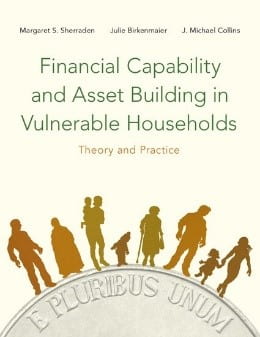
Also in the Asia region, a special issue on “Inclusive Child Development Accounts: Toward Universality and Progressivity” was recently published in the Asia-Pacific Journal of Social Work and Development and will be published as a book by Routledge/Taylor and Francis in London in March 2020. Edited by Jin Huang, Li Zou and Michael Sherraden, this project compares Child Development Account policies and programs in seven countries.
These collaborative international advancements in FCAB research and education are important steps in the ongoing global challenge to build financial capability and assets for all, one of the Grand Challenges for Social Work. Citing China’s “clear understanding that finance is not just about money, but is fundamentally about social functioning and development,” Sherraden believes that “China’s global leadership in information-age finance sets the stage for social development innovations.”
CSD will continue to advise and support the development of FSW in China, while at the same time learning from its Chinese partners. These productive partnerships will continue though curriculum, research and ongoing policy and practice innovations. In spring of 2020, representatives from CSD will attend several conferences and speaking events in China, including one at Peking University on poverty alleviation in rural China.
In the larger picture, Sherraden observed, “During a period of stress between the United States and China in global economic and political matters, international partnerships in education and research are all the more important. Regardless of political leaders, who will always come and go, Washington University’s academic ties with China are small yet durable threads that help to weave our countries together, and make the world a little better place.”
